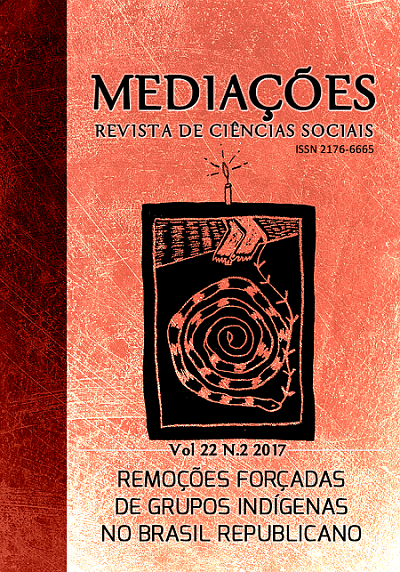Single, without children: less than half a person?
DOI:
https://doi.org/10.5433/2176-6665.2017v22n2p479Keywords:
Gender, Motherhood, Social theory, Family, FeminismAbstract
The non-marriage has marked the existence of women in different times and places. Except in specific contexts of stimulus to celibacy, this “condition” has been repeatedly represented as essential lack, social anomaly, never a chosen path or life project that can be lived positively. Under the logic of familism, which presupposes marriage and motherhood as privileged places of health and happiness, the childless and unmarried woman is perceived as selfish, lonely, unhappy, frustrated and unsatisfied, bordering the aberration. In this article I reflect on the relationship between maternity as a choice and social conventions or gender norms that consider single women as less than half a person on the scale of social status. It is a research based article carried out in a Brazilian metropolis in the 2000s.Downloads
References
BERNARDES, Tati. Legal, mas e o filho? Disponível em: http://www1.folha.uol.com.br/colunas/tatibernardi/2016/02/1743485-legal-mas-e-o-filho.shtml. Acesso em 27/02/2016.
BOTT, Elizabeth. Família e Rede Social. Rio de Janeiro, Francisco Alves, 1976.
BOURDIEU, Pierre. Estruturas, habitus, práticas. In: BOURDIEU, Pierre. O senso prático. São Paulo: Vozes, 2009.
BOURDIEU, Pierre. Gosto de classe e estilos de vida. In: ORTIZ, Renato. (org.) A sociologia de Pierre Bourdieu. São Paulo, Olho D’Água, 2003, p.73-111.
CORREA, Sônia & PETCHESKY, Rosalind. Reproductive and Social Rights: A Feminist Perspective. In: SEN, Gita, GERMAIN, Adrienne and CHEN, Lincoln C.n (eds.) Population Polices Reconsidered: Health, Empowerment and Rights. Cambridge, Harvard University Press, 1994, p.107-123.
DE BEAUVOIR, Simone. O segundo sexo. Rio de Janeiro: Nova Fronteira, 1980 [1949].
DIETZ, Mary G. Current Controversies In Feminist Theory. Annual Review of Political Science. n. 6, 2003, p.399-431
DURHAM, Eunice. Família e reprodução humana. In: FRANCHETO, Bruna, CAVALCANTI, Maria Laura V.C. e HEILBORN, Maria Luisa. (Orgs.) Perspectivas Antropológicas da Mulher. Rio de Janeiro: Zahar Editores, 1983, p.13-45.
ELSTHAIN, Jean Bethke. Feminism, Family and Community. In: FRIEDMAN, Marilyn and WEISS, Penny A. (eds.) Feminism and Community. Philadelphia, Temple University Press, 1995, p.259-272.
FIRESTONE, Shulamith. A dialética do sexo. Rio de Janeiro: Laboral do Brasil, 1976.
FONSECA, Claudia. Solteironas de fino trato: reflexões em torno do não-casamento entre pequeno-burguesas no início do século. Revista Brasileira de História. v. 18, p.99-120, 1989.
FOUCAULT, Michel. Friendship as way of life. In: RABINOW, Paul. (ed.) Michel Foucault: Ethics, subjectivity and truth. Essential Works of Michel Foucault. v. 1. New York, The New Press, 1997, p. 135-140.
GIDDENS, Anthony. Modernidade e Identidade. Rio de Janeiro: Jorge Zahar, 2002.
GONÇALVES, Eliane. Vidas no singular: noções sobre mulheres ‘sós’ no Brasil contemporâneo. 2007. Tese (Doutorado em Ciências Sociais) – Universidade Estadual de Campinas, Campinas, 2007.
GORDON, Tuula. Single Women: on the margins? New York University Press, 1994.
HALL, Elaine J. and RODRIGUEZ, Marnie Salupo. The Myth of Postfeminism. Gender and Society v. 17, 2003, p. 878-902. Disponível em : http://gas.sagepub.com/content/17/6/878. Acesso em outubro de 2011.
HERITIÉR, Françoise. Masculino/Feminino II: disolver la jeraquía. Buenos Aires: Fondo de Cultura Argentina, 2007.
HERITIÉR, Françoise. Masculino/Feminino: o pensamento da diferença. Lisboa, Instituto Piaget, 1996.
HIRD, Myra J. Vacant Wombs: feminist challenges to psychoanalytic theories of childless women. Feminist Review (75) – BRAH, Avtar, CROWLEY Helen and PUWAR, Nirmal. (ed.) Identities –, 2003, p.5-19.
HOLDEN, Katherine. Nature takes no notice of morality: singleness and married love in interwar Britain. Women’s History Review, v. 11 , n. 3, p.481-503, 2002.
KERGOAT, Daniele. Consubstancialidade das relações sociais. Novos Estudos, n. 84, p.93-103, 2002.
LASCH, Christopher. Refúgio num mundo sem coração. São Paulo: Paz e Terra, 1991.
LÉVI-STRAUSS, Claude. A Família. In: LEVI-STRAUSS, GOUGH & SPIRO. A Família, origem e evolução. Porto Alegre: Vila Marta, 1980, p.7-47.
MIGUEL, Luis Felipe; BIROLI, Flávia (Orgs). Teoria política feminista, hoje. In: MIGUEL, Luis Felipe; BIROLI, Flávia. Teoria Política Feminista, textos centrais. São Paulo: Horizonte, 2013, p.7-54.
RAMIREZ-GÁLVEZ Martha Célia. Novas tecnologias reprodutivas conceptivas: fabricando a vida, fabricando o futuro. 2003. Tese (Doutorado em Ciências Sociais) – Universidade Estadual de Campinas, 2003.
REIS, Ana Regina Gomes dos. Do segundo sexo à segunda onda: discursos feministas sobre maternidade. 142f. 2008. Dissertação (Mestrado em Estudos Interdisciplinares sobre mulheres) – Universidade Federal da Bahia, Salvador, 2008.
RICH, Adrienne. Compulsory heterossexuality. Signs - Journal of women in culture and society, Chicago, v. 5, n. 4, p.631-660, 1980.
SALEM, Tania. Sobre o “Casal Grávido”: Incursão em um Universo Ético. 1987. Tese. (Doutorado em Antropologia Social) – Universidade Federal do Rio de Janeiro, Rio de Janeiro, 1987.
SCAVONE, Lucila. A maternidade e o feminismo. Cadernos Pagu v. 16, p. 137-150. 2006.
SHULMAN, Alix Kates. Sex and Power: sexual bases of radical feminism. Signs - Journal of women in culture and society, v. 5 n. 4. Chicago: The University of Chicago, p.590-604, 1980.
SIMPSON, Roona. Contemporary spinsterhood in Britain: gender, partnership status and social change. Thesis submitted for the PhD degree, University of London, 2005.
STACEY, Judith. Are women afraid to leave home? In: MITCHEL, Juliet; OAKLEY, Ann. What is Feminism? Oxford-UK, Blackwell Publishers, 1986, p. 208- 237.
TAIN, Laurence. Um filho quando eu quiser? o caso da França contemporânea. Florianópolis: Estudos Feministas, v. 13, n. 1, p. 53-67, jan./abr. 2005.
TRIMBERGER, Kay E. The new singlewomen. Boston: Beacon Press, 2005. VELHO, Gilberto. Individualismo e Cultura. Rio de Janeiro: Jorge Zahar, 1999 [1981].
Downloads
Published
How to Cite
Issue
Section
License
Copyright on articles published in Mediações belongs to the author(s): in the case of partial or entire republication of the original publication, we ask author(s) to indicate the original publication in the periodical.
Mediações uses the Creative Commons Attribution 4.0 International license, which allows Open Access, enabling any user to read, download, copy and disseminate its content so long as adequately referenced.
The opinions expressed by the author(s) are their sole responsibility.
































